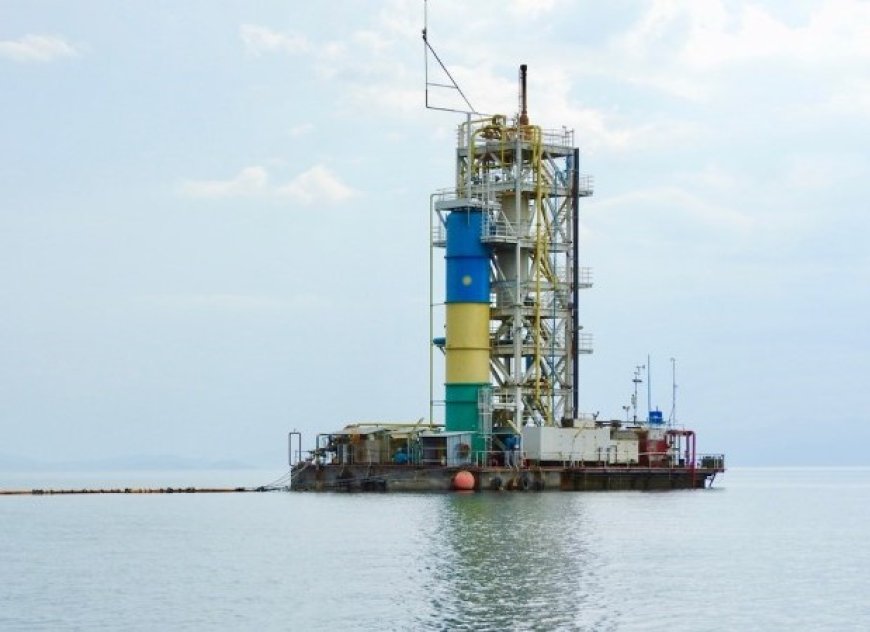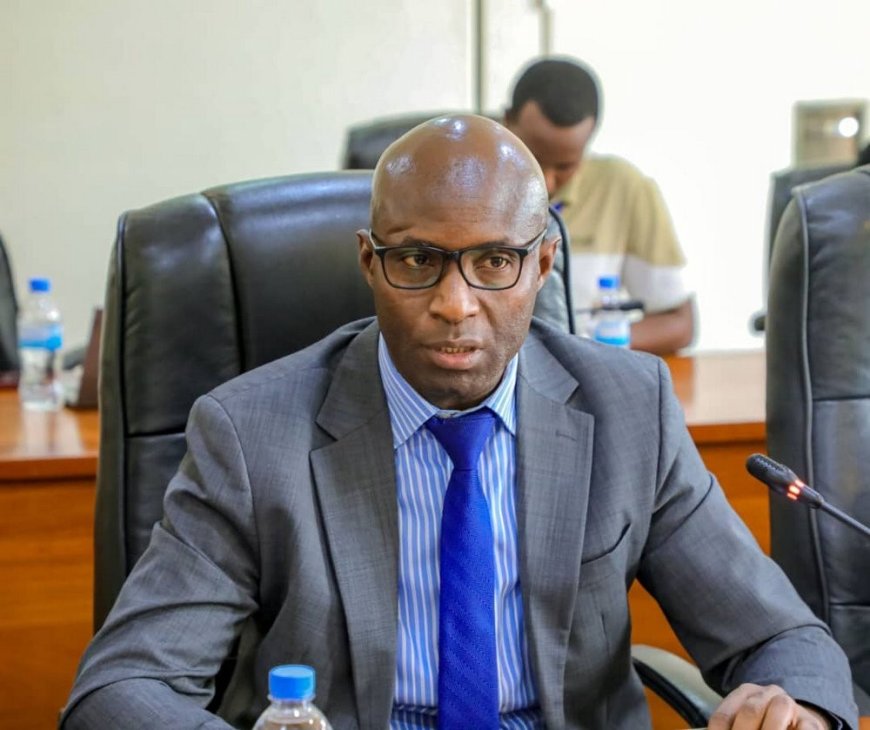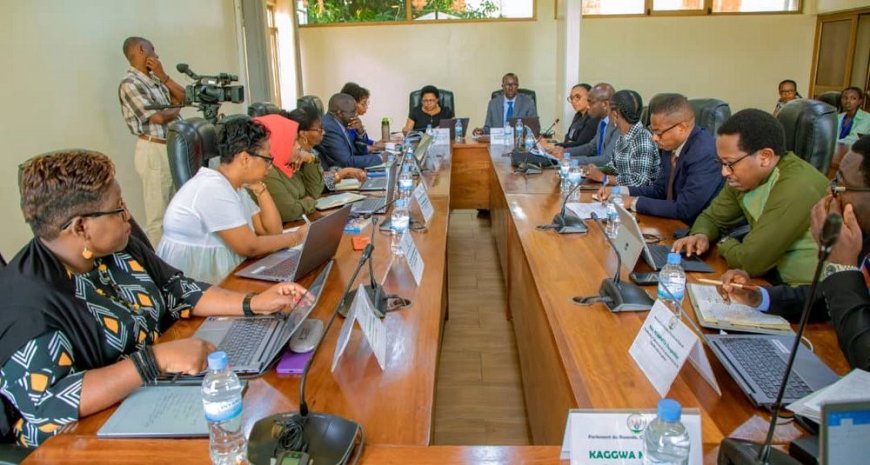Rwanda Discovers Oil in Lake Kivu: A Potential Game-Changer for the Nation
Rwanda has discovered 13 oil wells in Lake Kivu, signaling the possibility of large oil reserves. The preliminary findings are promising, but further exploration is required to assess commercial viability. This discovery could help Rwanda reduce reliance on energy imports and boost its economy.

Rwanda’s recent announcement regarding the discovery of oil reserves beneath Lake Kivu has captured the attention of both local and international stakeholders, signaling a potential transformation in the nation’s energy and economic landscape. The discovery, while still in its early stages, represents a significant step forward for Rwanda’s energy sector, potentially shifting the country’s reliance on imported fuels and positioning it as a key player in Africa's growing oil industry.
The Discovery: A First for Rwanda
On January 15, 2025, Rwanda’s Mines, Petroleum, and Gas Board (RMB) revealed the discovery of 13 oil wells in Lake Kivu. Located in the western part of Rwanda, Lake Kivu borders the Democratic Republic of Congo (DRC) and is known for its rich natural gas deposits. The discovery was made following extensive exploration activities conducted in the region, and initial findings suggest that the lake could hold significant oil reserves.

“The good news is that we have oil,” stated Francis Kamanzi, the CEO of the RMB, during a parliamentary briefing. He added that the presence of oil in the region is not entirely unexpected, citing the recent discoveries of oil in neighboring Uganda’s Lake Albert, which is believed to be part of the same geological rift that extends through Lake Kivu to Lake Tanganyika. The geological similarities between these regions have led experts to believe that Lake Kivu could hold substantial oil reserves, potentially more than its neighboring countries.
Further Exploration Needed
While the discovery has been confirmed, experts emphasize that it is still too early to make definitive claims about the quantity and commercial viability of the oil reserves. The RMB stated that further exploratory activities are needed, including deep drilling and laboratory analysis to determine the volume, type, and quality of the oil.
The extraction process is expected to be costly and complex. According to RMB, drilling one well could cost over $15 million (approximately Rwf 20 billion), and previous exploration phases have already required substantial financial investment. Despite these challenges, Rwanda remains optimistic that oil production from Lake Kivu could become a major asset for the country’s economy.

Economic Implications for Rwanda
If the oil reserves in Lake Kivu are confirmed to be commercially viable, the impact on Rwanda’s economy could be substantial. The country has long struggled with energy import dependency, importing most of its petroleum products from countries like the UAE, Saudi Arabia, and India. The discovery of oil could reduce Rwanda’s reliance on these foreign imports, providing a local source of energy to power the nation’s growing industries, infrastructure, and transportation networks.
Moreover, oil extraction would contribute to job creation and boost Rwanda’s industrial capacity. The development of the oil sector could lead to the establishment of new industries, including refineries, logistics networks, and petrochemical plants, which would diversify the economy beyond its reliance on agriculture, tourism, and foreign aid. Additionally, Rwanda could use the revenue generated from oil production to invest in infrastructure projects, social services, and public development programs.
Regional Context and Opportunities
Rwanda’s oil discovery also has significant implications for regional energy dynamics in East Africa. Neighboring countries, especially the DRC, have a vested interest in the region’s oil and gas reserves, and cooperation between Rwanda and the DRC on oil exploration could help foster greater regional integration. The two nations have already engaged in discussions about joint oil exploration in Lake Kivu, despite ongoing conflicts in the eastern part of the DRC.
The oil reserves in Lake Kivu could also serve as a springboard for Rwanda to attract international investors, particularly from countries with extensive oil production expertise, such as Nigeria, Angola, and Algeria. As global demand for oil continues to rise, Rwanda’s potential as an emerging oil producer could draw interest from multinational oil companies seeking new resources.
Environmental Considerations and Challenges
As Rwanda embarks on its oil exploration journey, the country must also be mindful of the environmental implications of oil extraction. Lake Kivu is unique due to its large quantities of dissolved methane gas, which is extracted for energy production. The presence of methane raises concerns about the potential environmental risks associated with oil drilling, particularly in terms of water contamination and ecosystem disruption.
To mitigate these risks, the government and exploration companies must prioritize sustainability and adopt cutting-edge technologies that minimize environmental damage. Additionally, the government has committed to conducting thorough environmental impact assessments before proceeding with large-scale drilling operations. Ensuring that oil extraction does not compromise the health of Lake Kivu and its surrounding communities will be crucial in maintaining Rwanda’s commitment to environmental conservation.
A Long Road Ahead
While the discovery of oil in Lake Kivu is an exciting prospect for Rwanda, the country faces a long road ahead before it can fully capitalize on this newfound resource. The exploration process is expected to take years, with numerous stages of drilling, testing, and regulatory approval required before commercial production can begin. Rwanda’s oil sector will also need significant investment in infrastructure, including pipelines, refineries, and storage facilities, to support large-scale production.
Furthermore, the country will need to establish clear regulatory frameworks and policies to govern the oil sector, ensuring transparency, fair distribution of profits, and protection of local communities. The successful development of Rwanda’s oil reserves will depend on the country’s ability to manage this new resource responsibly and effectively, balancing economic growth with environmental sustainability.
Looking to the Future
As Rwanda moves forward with its oil exploration efforts, the government remains hopeful that the discovery of oil in Lake Kivu will help drive the nation’s energy independence and economic growth. The oil reserves, if confirmed, have the potential to transform Rwanda’s energy landscape and provide a much-needed boost to its economy.
However, the next few years will be critical in determining whether the oil discovery is a game-changer or merely an ambitious hope. With careful planning, robust environmental safeguards, and strategic investment, Rwanda could position itself as one of Africa’s emerging oil producers, ushering in a new era of economic opportunity and energy security.
For now, Rwanda continues to move cautiously but optimistically toward unlocking the full potential of Lake Kivu’s oil reserves, with the support of international partners and the backing of local communities. The country’s journey to becoming an oil producer is just beginning, but the stakes are high, and the possibilities are vast.
 Kinyarwanda
Kinyarwanda
 English
English







































































